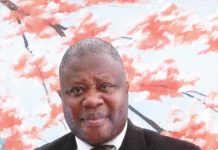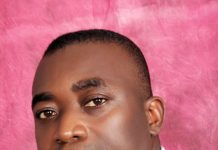The National Democratic Congress (NDC) is up in arms again and as usual it is all about the welfare of the poor and downtrodden. The opposition party is now attacking the Bank of Ghana (BoG), Ghana’s Central bank.
First, it came public that BoG has a negative equity position of GH¢55.1 billion or $4.9 billion. That is scary, to consider that we had to go to IMF and borrow $ 3 billion and BoG could go down by almost US$5 billion.
The question is, can Central banks go broke? According to Econpapers, Central banks can go broke and have done so, although mainly in developing countries.
The conventional balance sheet of the central bank is uninformative about the financial resources it has at its disposal and about its ability to act as an effective lender of last resort and market marker of last resort.
As long as central banks don’t have significant foreign exchange-denominated liabilities or index-linked liabilities, it will always be possible for the central bank to ensure its solvency though monetary issuance (seigniorage).
However, the scale of the recourse to seigniorage required to safeguard central bank solvency may undermine price stability. In addition, there are limits to the amount of real resources the central bank can appropriate by increasing the issuance of nominal base money.
For both these reasons, it may be desirable for the Treasury to recapitalise the central bank should the central bank suffer a major capital loss as a result of its lender of last resort and market maker of last resort activities.
BIS Bulletin 68, explains further how Central banks can go broke even in first world economies as well.
“Central banks have increasingly deployed their balance sheets in recent decades as a tool to pursue macroeconomic and financial stability objectives in support of their economies.
After the Great Financial Crisis (GFC), some advanced economy (AE) central banks used asset purchase programmes (APPs) or other lending programmes to achieve their policy aims. Others introduced such programmes during the Covid19 pandemic.
These were funded mainly through interest-bearing commercial bank reserves, resulting in a declining share of interest-free liabilities. In doing so and to pursue their policy objectives, central banks took financial positions, which influence their profits and losses as a by-product.
When central banks increase interest rates to curb inflation, their net interest income declines, since a large portion of their liabilities is linked to policy rates.1.
Asset valuations also decline with rising bond yields, putting further pressure on profitability for central banks using an accounting treatment that recognises changes in market values in calculating net profits.
Reflecting these dynamics, some central banks have recently reported losses, and more are expected to follow.2. In some cases and depending on accounting approaches, losses are sizeable and can result in negative equity.”
From this, one can never doubt that during the 80’s and 90’s at the time Ghana’s economy was worse managed during this country’s history, BoG went broke, bankrupt. But, guess what, if there were occasions when BoG went bankrupt in the PNDC/NDC days, the populists will rationalize it. Trust them they will.
BIS has clearly explained what is happening to some Central banks and the reasons cannot be assigned to mismanagement. In finance, such things do happen, that is why the economist will always say, “all things being equal.”
To incite the suffering public, there is a list of expenditures allegedly made by BoG in 2022. To make it look extraordinarily enormous, the amounts were converted in Old cedis. So, we have 1). Foreign and Domestic Travels, GH¢97.4 million or ¢ 974 billion; 2).
Motor Vehicle Maintenance and Running, GH¢131.6 million or ¢1.316 trillion; 3). Banking Supervision Expenses GH¢357.9 million or ¢3.579 trillion; 4). Directors’ Remuneration GH¢ 8.6 million or ¢86 billion; 5). Communication Expenses GH¢32 million or GH¢320 billion and 6). Computer Related Expenses GH¢ 67.9 million or ¢679 billion.
This is what has been put in the public domain and shortly after the NDC MPs served notice, given the Governor of the Bank of Ghana, Dr. Addison, and his two deputies to within twenty-one days, resign from office or the NDC will evade BoG and take over the place.
I believe this could be a well calculated plan to overthrow the constitution by using another form of coup called popular revolt or uprising. The fact is BoG is one of the high security areas in the country and an attack on BoG is a direct attack on government.
With the current coup pandemic spreading across West Africa, and with the populace eager to get rid of those allegedly mismanaging their countries, there have been calls for coups across the sub region. One comic character on social media, who pronounced coups as coops, warned Ghana that they are coming.
West Africa is the sub-region in Africa where the most coups had taken place. Between 1952 when the first coup in Africa took place on July 23, in Egypt to the Sept 1, 1969 coup in Libya, totalling twelve coups in all, West Africa alone, recorded seven. To date West Africa has become the coup hub of Africa, so it will not be out of the ordinary to have one, in Ghana.
And, some populists are cleverly using the economic situation in Ghana to incite the people to rise up and overthrow this constitution.
Back to the millions, allegedly wasted by BoG. It is very surprising that a political party like the NDC will talk about wastage.
In 2009, when the NDC was voted back to power, then President John Evans Atta Mills, appointed a 12-memberTransitional Team to assist in the transition from the Kufuor Administration to his government. The twelve-member team was made up of Mr. P.V. Obeng, Chairman; Mr. Alex Segbefia, Secretary and Ms Hannah Tetteh, Spokesperson.
The other members who were chairpersons of sub-committees are, namely, Mr. Victor Gbeho; Dr. Don Arthur; Togbe Afede Asor XIV; Brig. Joseph Nunoo-Mensah; Alhaji Muhammad Mumuni; Mr. Ekwow Spio-Garbrah; Betty Mould-Idrissu; Mr Kwame Peprah and Alhaji Mahama Idrissu.
The state was billed a total of GH¢361,924.41 for expenditure in the caring of the team. This included GH¢135,316.30 for snacks and lunch. This total bill did not include cost of free fuel drawn by the members.
In 2009, GH¢361,924.41 was equivalent to $280,263.70 and that amount today will be equivalent to GH¢3,138,953.40. It is very clear that the amount spent on the average, for each member of NDC Transitional Team in a month was equivalent to GH¢261,579.45.
Can the NDC come out to explain why so much was spent? Until BoG comes out to explain how it spent these monies in a year, I will not join in its condemnation. For if just twelve people can spend government’s money of today’s equivalent of GH¢3,138,953.40 in a month, then a very big institution like BoG should not be condemned for sinking in the Red with a figure of GH¢55.1 billion. And as BIS Bulletin stated it could for good reasons and not mismanagement that got BoG into the Red.
Having explained myself above, I will take this opportunity to draw Ghanaians minds to what the populists have done and do intend to do.
The PNDC overthrew the constitutional government of Hilla Limann in 1981. Ghanaians were told that life was too tough and rough, with premium petrol going for ¢12.50 to a gallon; regular petrol at ¢11.30 to a gallon; diesel at ¢8.50 to a gallon and kerosene at ¢5.00 to a gallon.
The PNDC proclaimed that this was certainly unbearable, and Ghanaians accepted. One other thing was, how could cutlass be sold for ¢15.66? And many cried out in support of the PNDC, screaming“we no go sit down make them cheat we, everyday!” The cedi which was trading at ¢2.75 to a USD was also very unacceptable.
On Thursday April 21, 1983, the PNDC read its first budget. Fuel prices shot up, with premium petrol going for ¢ 25.05 to a gallon; regular petrol shot to ¢21.45; diesel was up to ¢15.90 and kerosene, the main source of energy for the poor and downtrodden went from ¢5.00 a gallon to ¢13.20. Cutlass, which the poor farmer needed most, also went up from ¢ 15.66 for one to ¢50.00.
Then on October 11, 1983, the government devalued our currency to ¢30.00 to US$1. And in all this the people kept screaming, “We no go sit down make them cheat we, everyday!”
So, today, the NDC wants to hack on the challenges Ghanaians are facing to create a popular uprising, but can this resolve the current crisis? In 1981, the PNDC government came to power and the cedi stood at ¢2.75 to $1.00. After nineteen uninterrupted years, the PNDC/NDC exited the scene with the cedi at ¢6,750.00 to $1.00, an almost 300,000% depreciation.
That for Hon. Cassiel Ato Forson who is in court over recklessly spending the state’s € 2.37 million in buying defective ambulances, to be leading the charge that is insisting that BoG should get rid of its governor and his deputies, is unacceptable. This can only happen in Ghana.
Readers, I will humbly request you to find out what can make a Central bank go broke and let us wait for BoG to come and tell us what went wrong. I will hereby appeal to the NDC to desist from occupying the premises of BoG in its protest that could be suspected as another form of coup and could result into one.
Hon. Daniel Dugan










